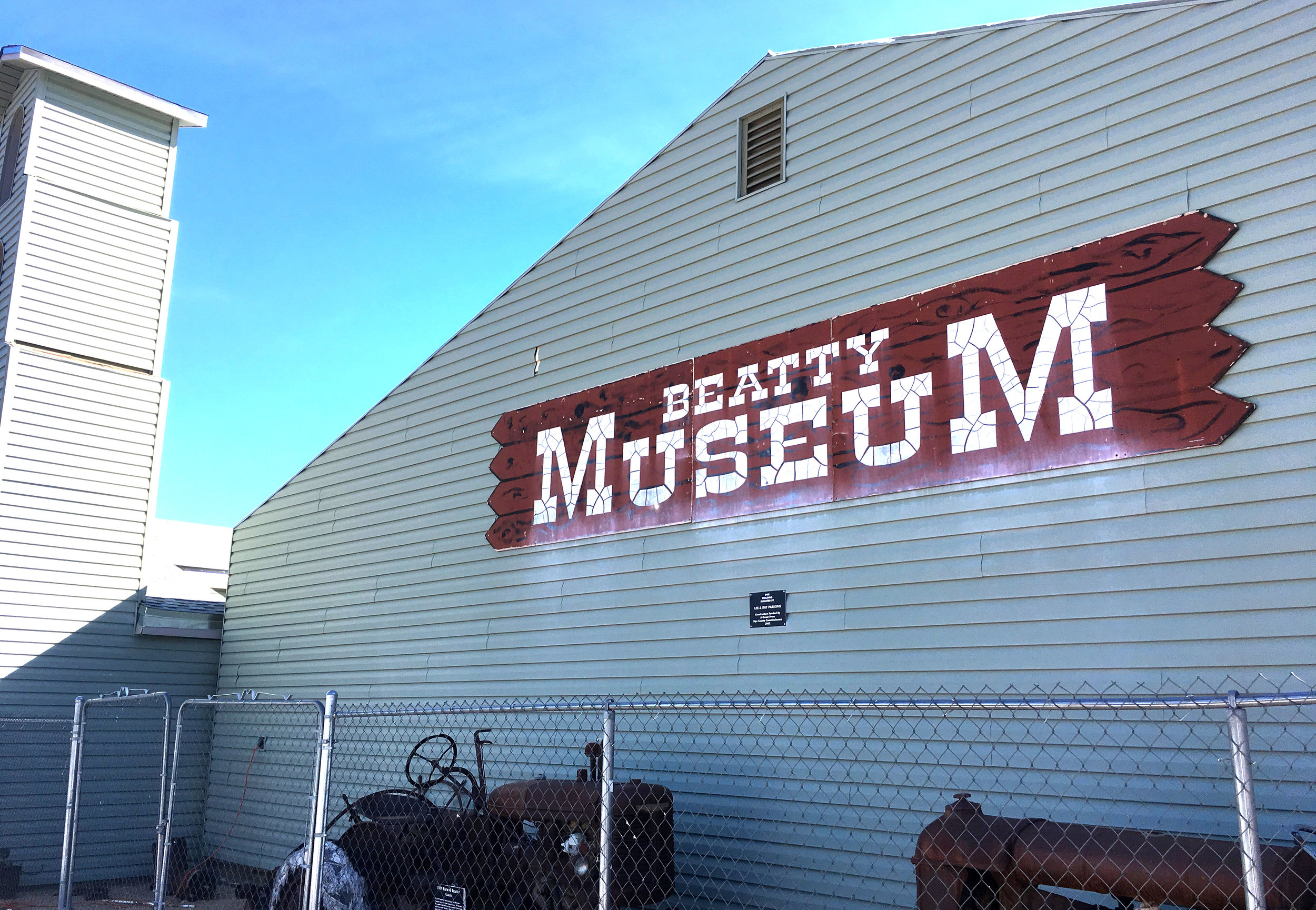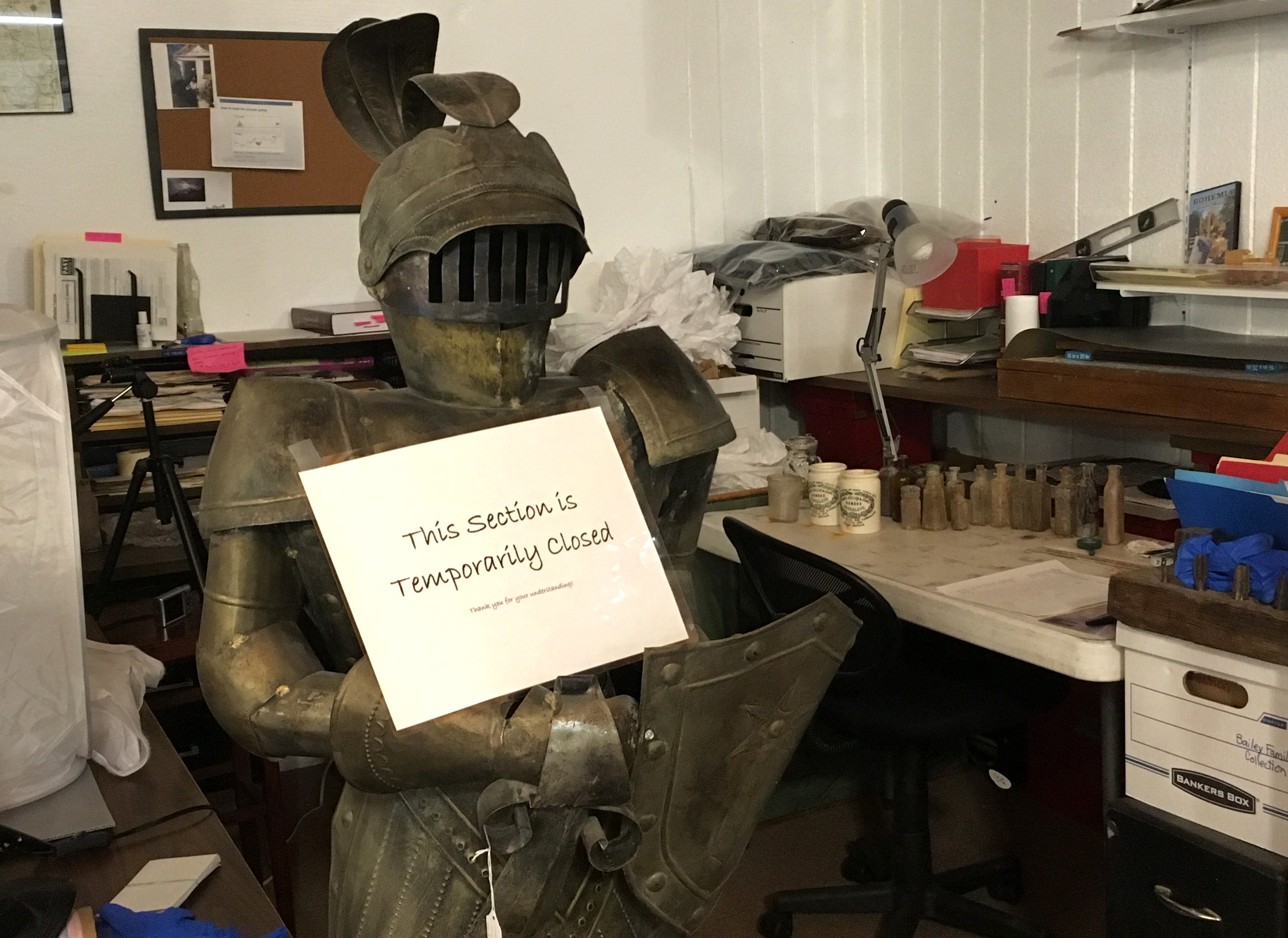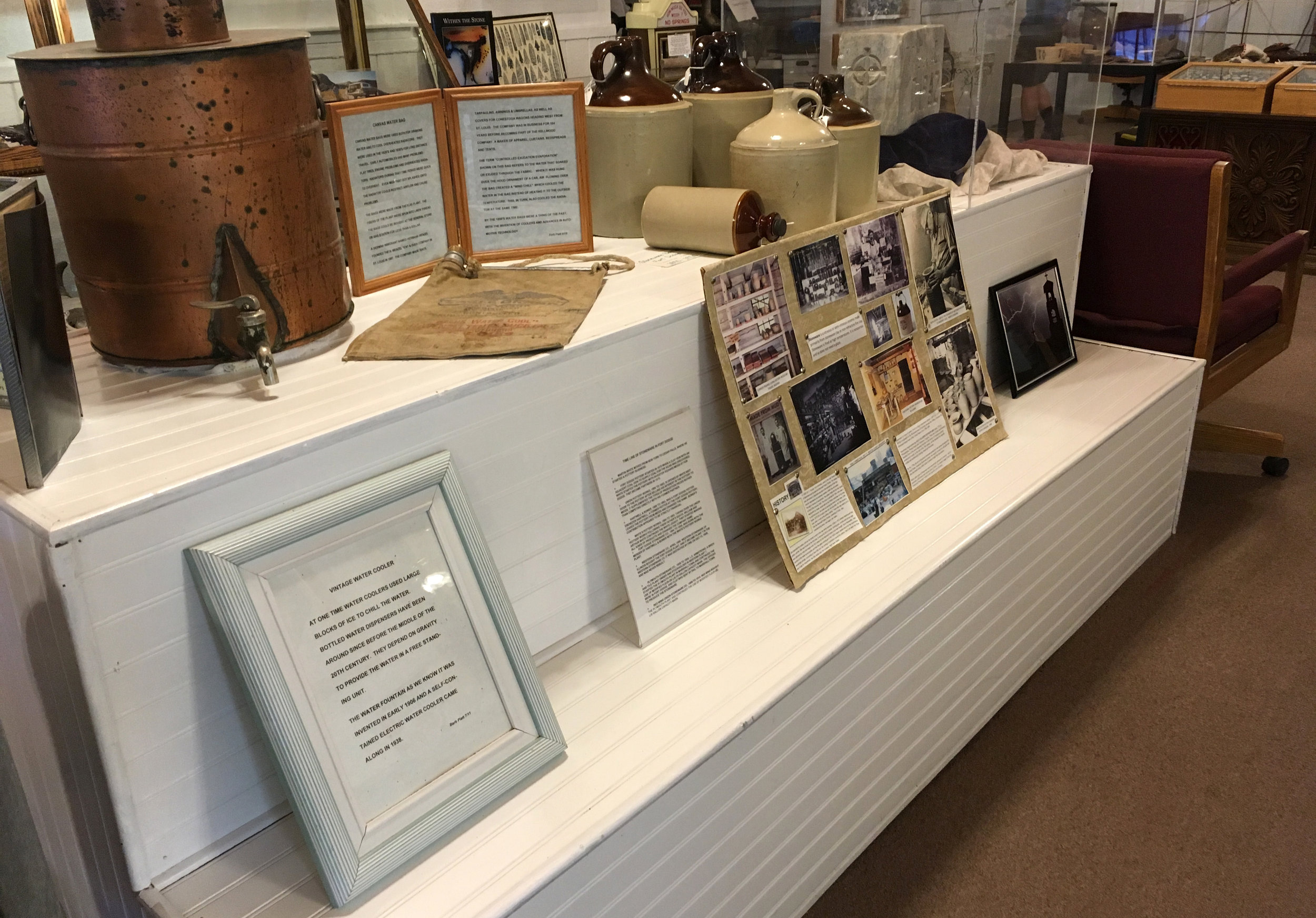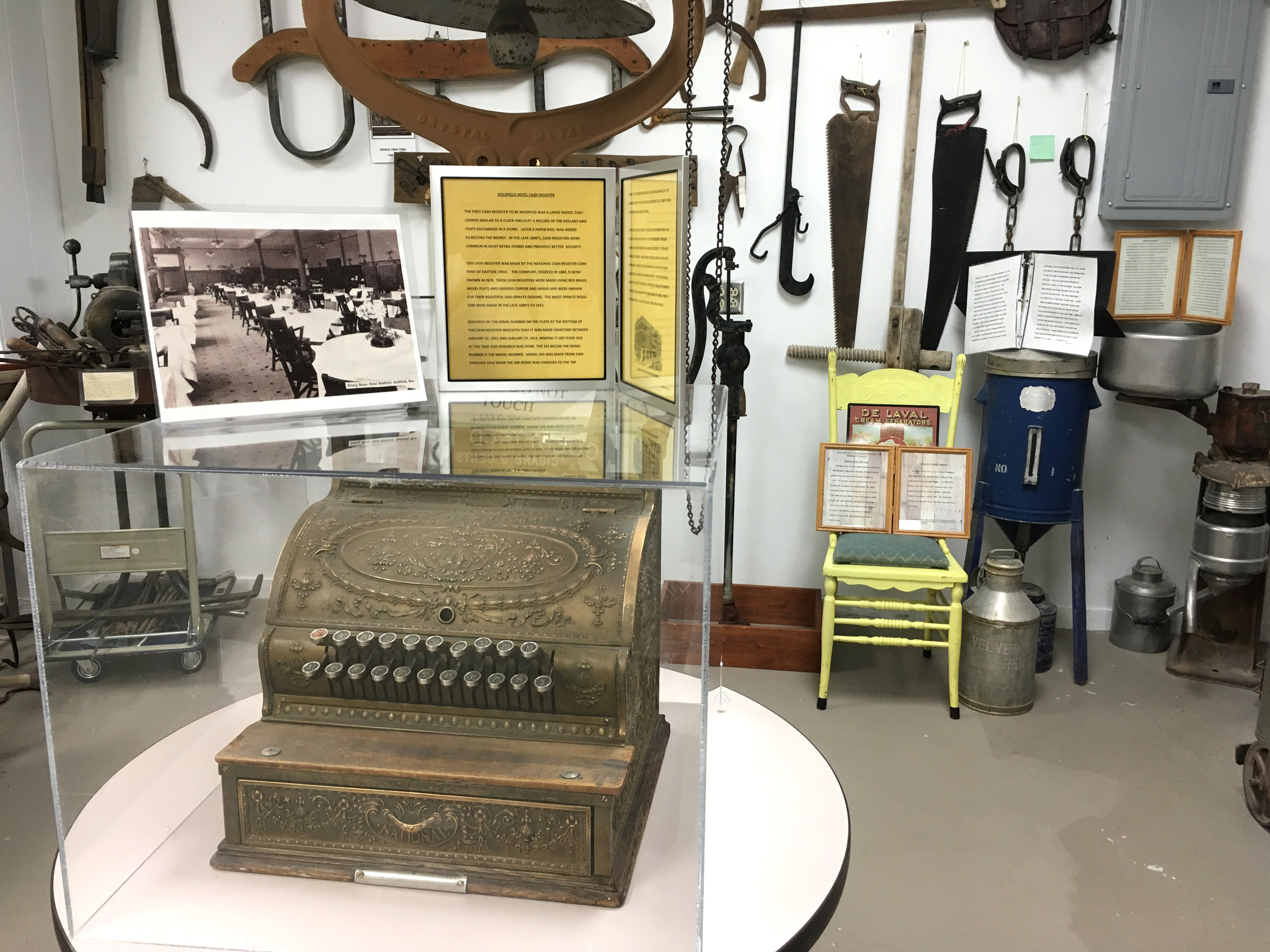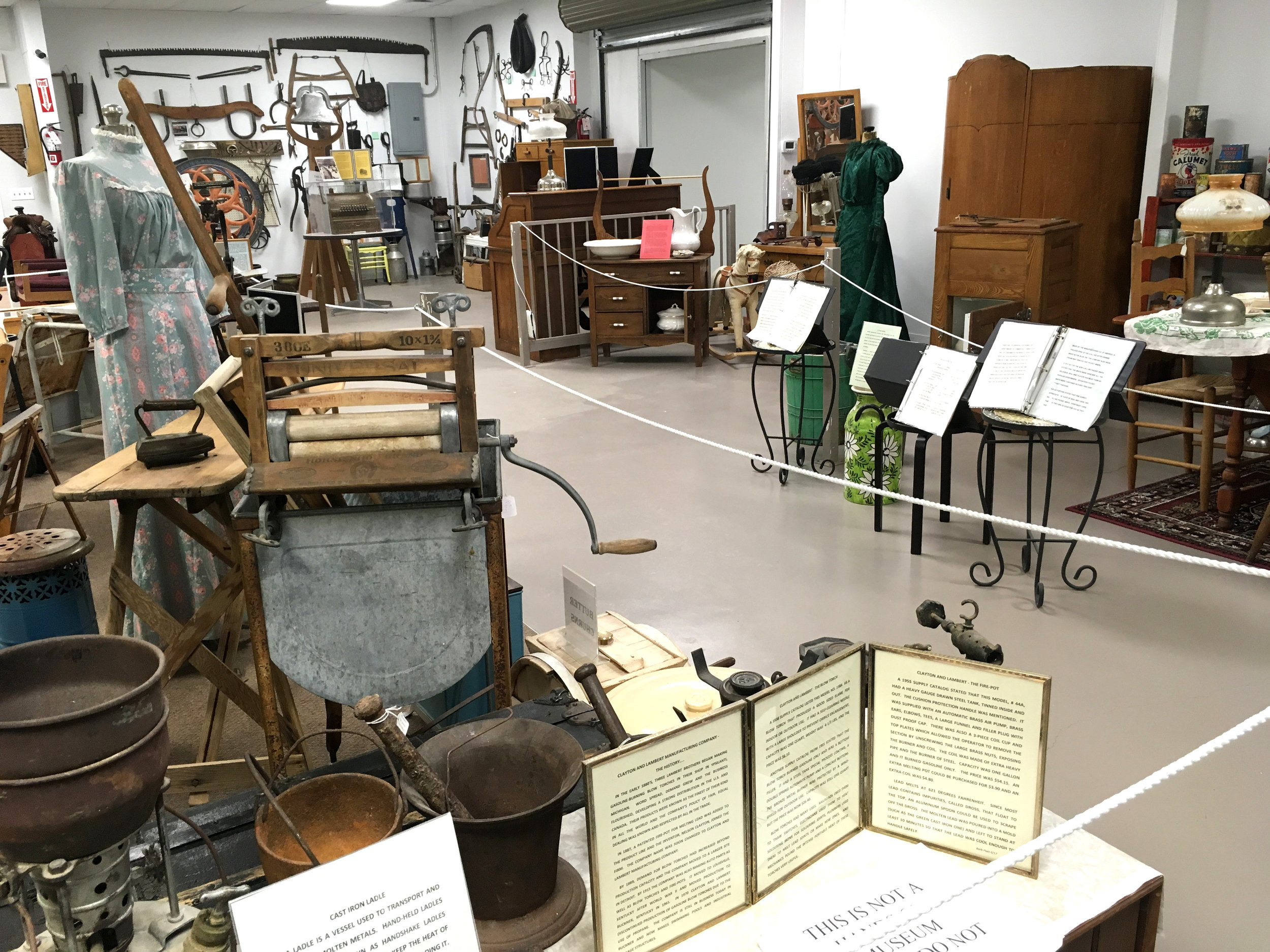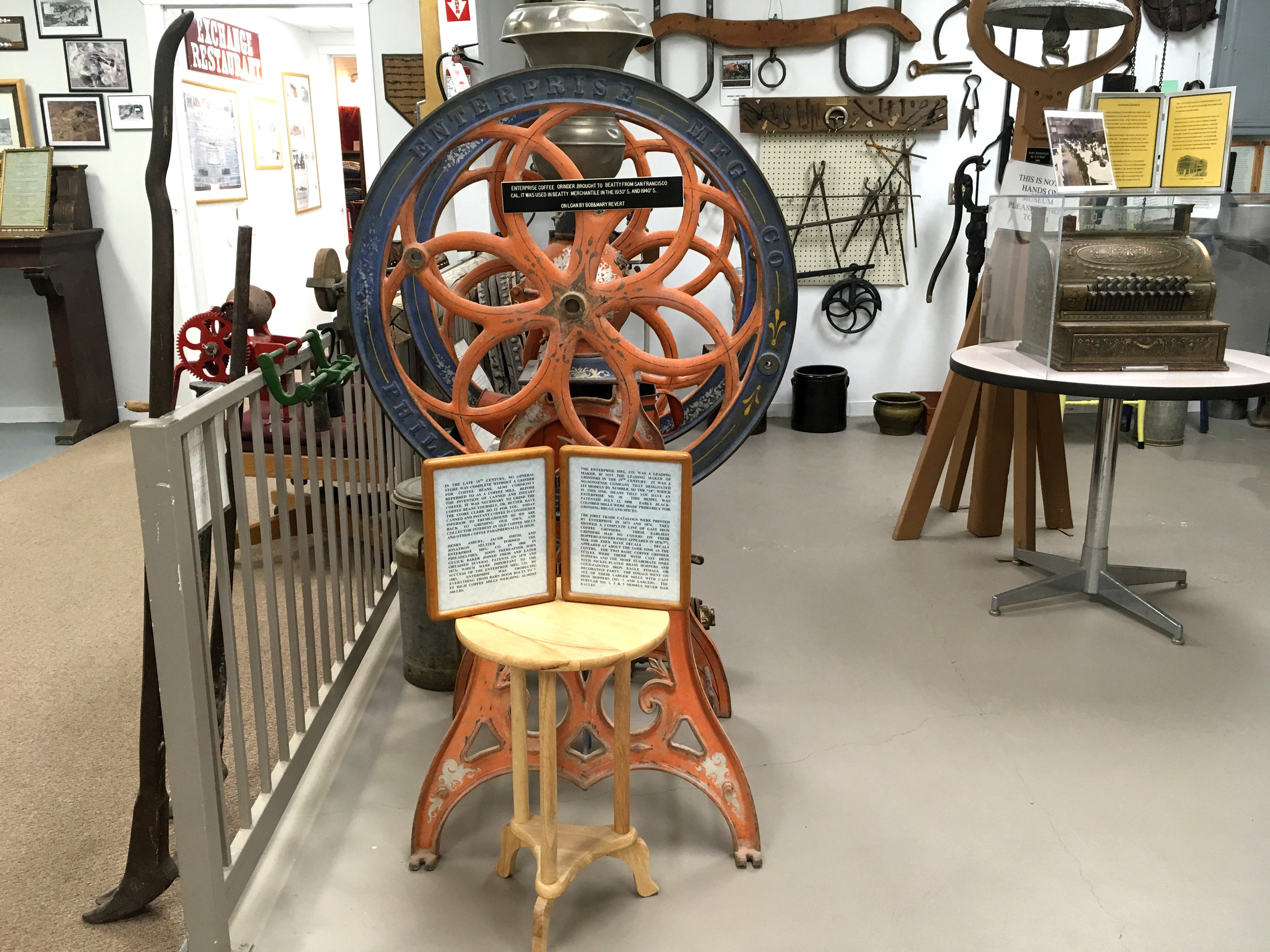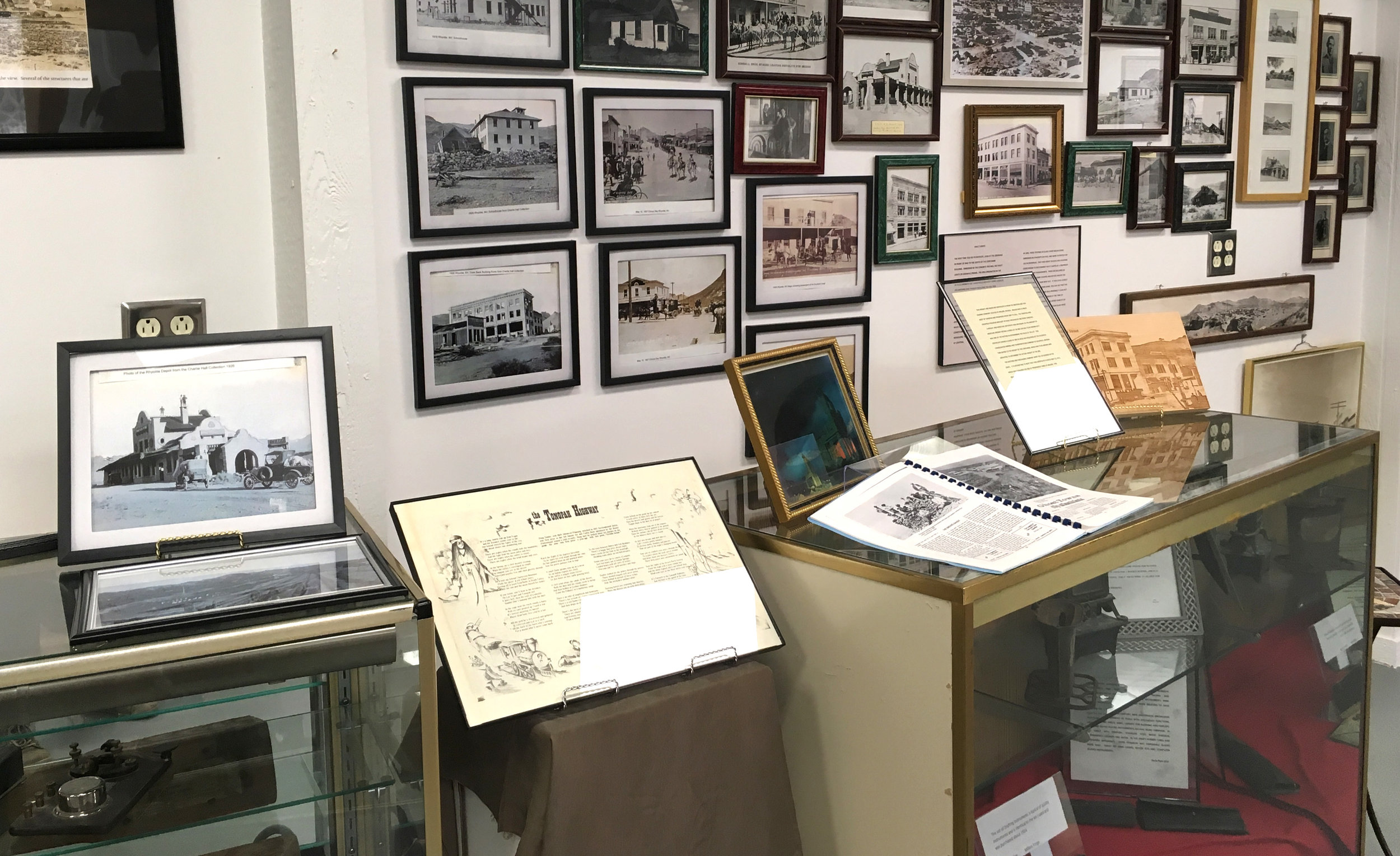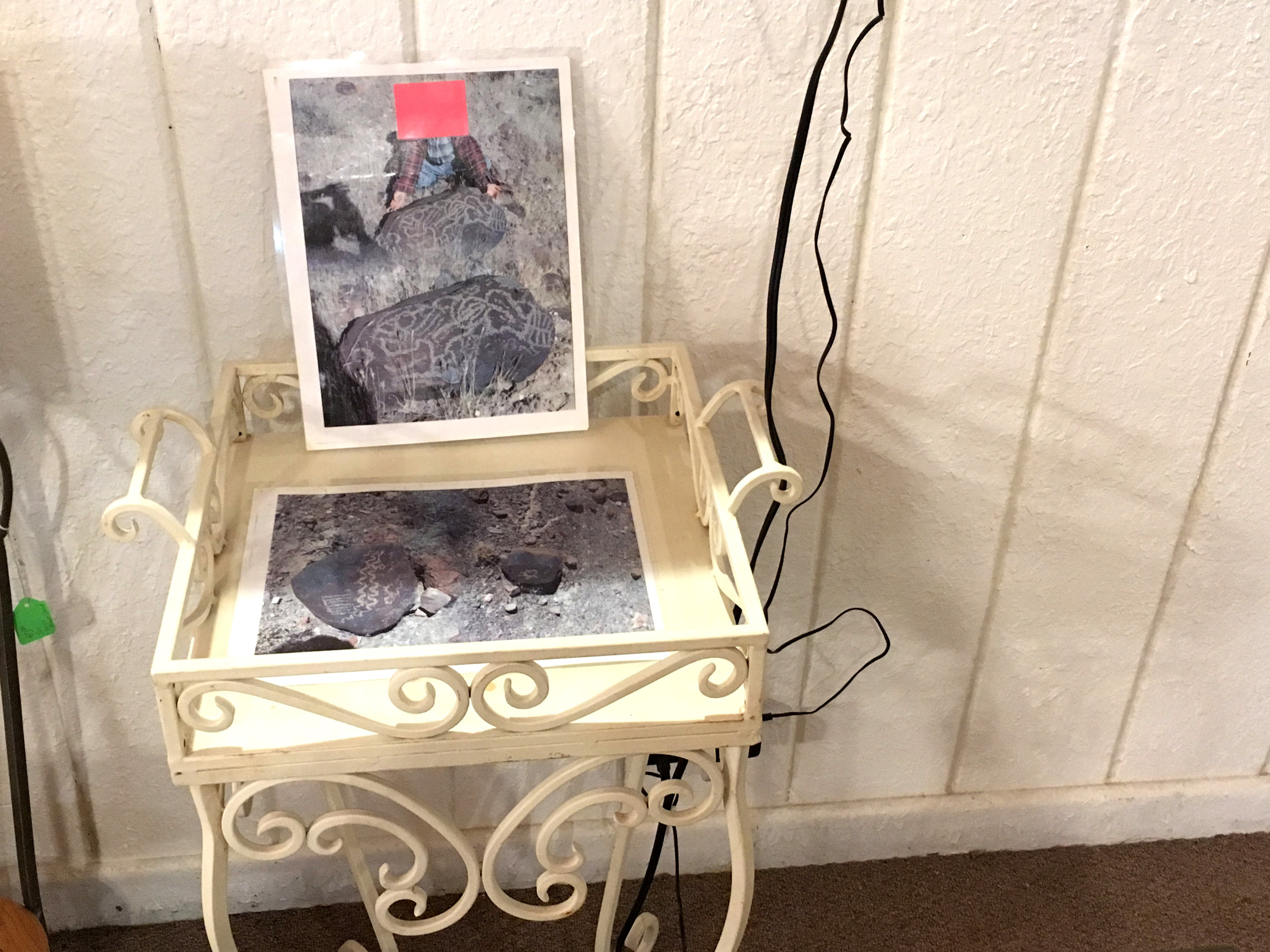Propped Up (Nevada)
Beatty, Nevada. I enjoy visiting small town museums. Their sincere home-grown nature is appealing. But the visitor experience is often muddled by a randomly "found" approach, like visiting a thrift store.
In Beatty, the sheriff is the only divider between the little museum store area in the front and the museum behind him.
These little museums are clearly a labor of love. They are often quirky, without any self awareness about it. Beatty's display furniture and seating were probably scavenged from the garages of generous neighbors. It would be interesting to recognized this and find a way to make it a meaningful part of their narrative.
The small museum office in the back corner is exposed to the same open museum space. Anything revealed creates curiosity. Especially with a knight holding a temporarily closed sign. It's another lost narrative and opportunity to engage with community, staff and museum process.
Objects look as if they're in storage. As if they were delivered in a rush, unloaded off a truck over the weekend. The jumble promotes browsing behavior, not reflection. White rope stanchions and labels are the primary indicator that this is a museum, not a vintage barn.
Small town museums are usually isolated, with very limited resources. "Propping" is a cheap and easy label approach. Beatty's label design vocabulary includes picture frames and 3 ring binders, propped on ledges,
on the objects themselves,
and on various little tables and stools.
The labels could be re-designed for consistency with less text, no CAPS!, and more artfully propped. Tables and stools could even be part of a thoughtful and integrated redesign. But the propping is really a casual symptom of a deeper problem; a lack of clear intention. The narrative at Beatty feels as randomly "found" as everything else.
Many labels feel hybrid, as if they were edited adding information to someone's verbal account. This dilutes both the information and what might have been a rich personal anecdote.
Some of the short identifying labels are hand written, suggesting individual memories but without sharing them. Some labels are credited and some are anonymous.
The content and writing style varies, as if each donor dropped off their own label and went home again. The eclectic aspect is not honored or enhanced. Who is Beatty? Most small town museums can't afford major design work. But exploring the potential of narrative doesn't have to be expensive. It does require time for self reflection, to uncover unique voices and meaningful narrative(s).
My favorite aspect of small town home-grown museums, is the occasional surprise like this. To me, this strange display is an unintentional artpiece.
